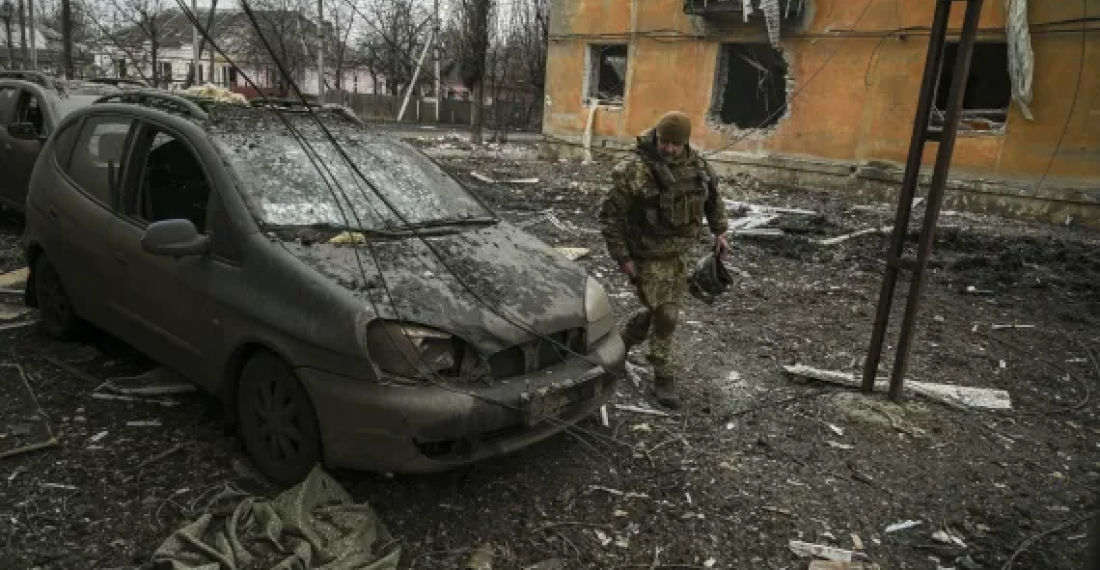Oleksandr Syrskyi, the commander of Ukraine's Ground Forces, has said in the morning of Monday (13 March) that fighting around the Ukrainian town of Bakhmut - an industrial town with a pre-war population of some 70,000 - remains "difficult" as assault units of the Russian Kremlin-backed mercenary group Wagner continue trying to break through Ukrainian defense lines and advance to the central areas of the city.
Quoted by the Ukrainian defense ministry's media center, Syrskyi said "in fierce battles, our defenders inflict significant losses on the enemy. All enemy attempts to capture the city are repelled by artillery, tanks, and other firepower."
Russia, and in large part Wagner, has been trying to take Bakhmut for some seven months. In recent weeks Russian and Wagner forces have slowly advanced towards the town and have reportedly partially encircled it. Last week Ukraine is understood to have partially withdrawn to west of the Bakhmutka river that divides Bakhmut, and now marks the front line.
Russia loses almost 3,000 soldiers in three days, according to Ukrainian sources
According to Ukrainian sources, Russia has lost almost 3,000 soldiers over the last three days. In daily updates released by the Ukrainian Ministry of Defence, Russia suffered 1,010 casualties on 10 March, 1,090 casualties on 11 March, and 710 casualties on 12 March, totalling 2,810 over the course of the last three days.
Although these statistics are very difficult to independently verify, reports have indeed suggested significant Russian losses of personnel and equipment over the past few weeks.
Also in its daily update, the Ukrainian Ministry of Defence announced that it had repelled 102 Russian attacks on Sunday (12 March). On the same day, Russia conducted three missile attacks, eight air strikes, and 49 attacks from multiple launch rocket systems, it said. The report added that Russian forces are trying to replenish their battle-damaged troops due to heavy battlefield losses, citing recent reports of a Russian train with prisoners’ cars headed for Ukraine's Donetsk oblast last week.
source: commonspace.eu with The Kyiv Independent
photo: Aris Messinis/AFP






